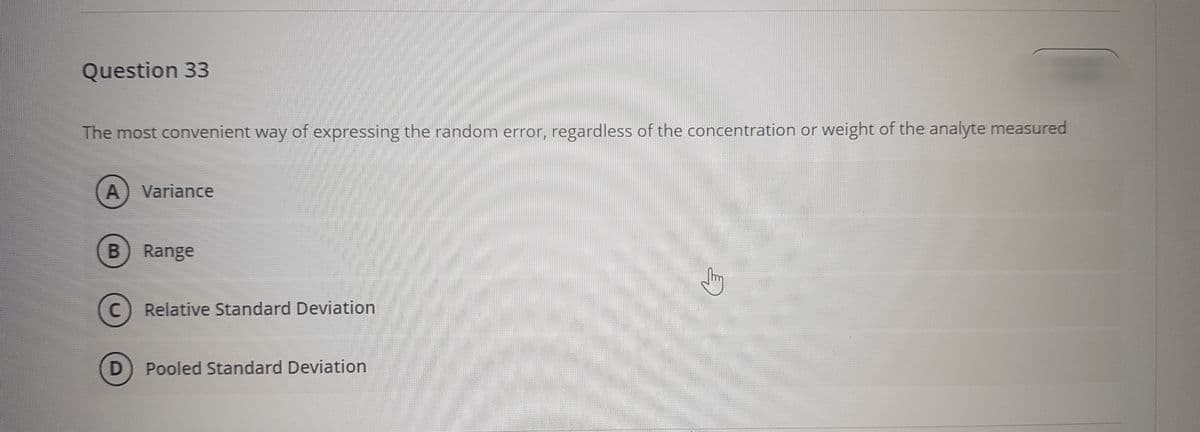Question 33 The most convenient way of expressing the random error, regardless of the concentration or weight of the analyte measured A Variance B Range Relative Standard Deviation Pooled Standard Deviation
Question 33 The most convenient way of expressing the random error, regardless of the concentration or weight of the analyte measured A Variance B Range Relative Standard Deviation Pooled Standard Deviation
Principles of Instrumental Analysis
7th Edition
ISBN:9781305577213
Author:Douglas A. Skoog, F. James Holler, Stanley R. Crouch
Publisher:Douglas A. Skoog, F. James Holler, Stanley R. Crouch
ChapterA1: Evaluation Of Analytical Data
Section: Chapter Questions
Problem A1.20QAP
Related questions
Question

Transcribed Image Text:Question 33
The most convenient way of expressing the random error, regardless of the concentration or weight of the analyte measured
Variance
B Range
C) Relative Standard Deviation
Pooled Standard Deviation
Expert Solution
This question has been solved!
Explore an expertly crafted, step-by-step solution for a thorough understanding of key concepts.
Step by step
Solved in 2 steps

Knowledge Booster
Learn more about
Need a deep-dive on the concept behind this application? Look no further. Learn more about this topic, chemistry and related others by exploring similar questions and additional content below.Recommended textbooks for you

Principles of Instrumental Analysis
Chemistry
ISBN:
9781305577213
Author:
Douglas A. Skoog, F. James Holler, Stanley R. Crouch
Publisher:
Cengage Learning



Principles of Instrumental Analysis
Chemistry
ISBN:
9781305577213
Author:
Douglas A. Skoog, F. James Holler, Stanley R. Crouch
Publisher:
Cengage Learning

